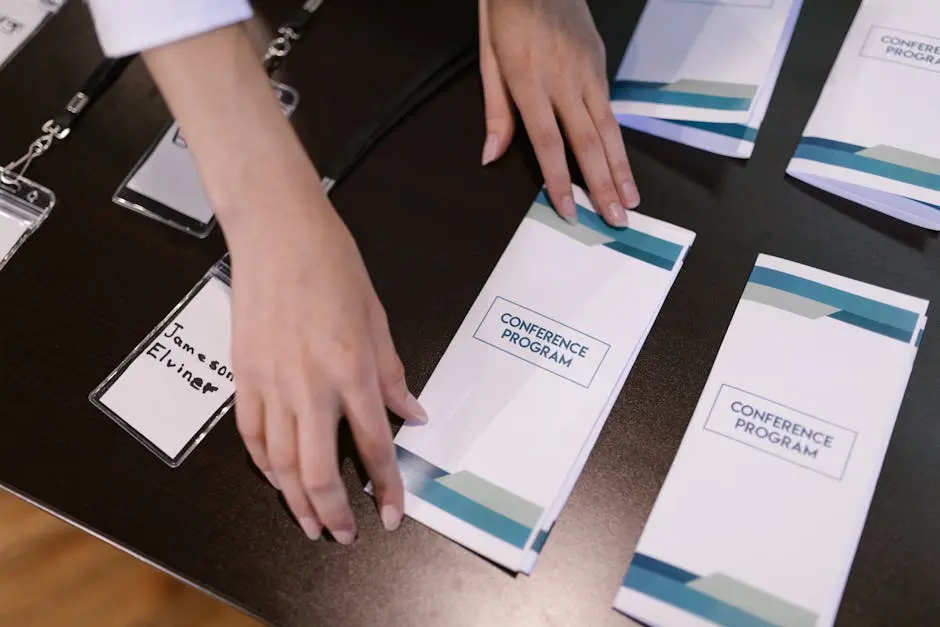4 May 2025

Organising a successful corporate gathering in the UK can be a complex task, filled with evolving demands and intricate logistics. That’s where AWD Group steps in—bringing expert guidance, hands-on support, and years of event management experience to streamline your planning and execution.
With the right strategies and a dedicated team by your side, event coordination can transform challenges into opportunities for growth, connection, and measurable success. In this blog, we’ll explore key methods to enhance your event planning process.
Understanding the Role of an Event Coordinator
An event coordinator is crucial in orchestrating a successful corporate gathering. In the UK, this involves understanding the unique requirements of the market, building a detailed plan, and executing each stage with precision. A talented coordinator combines experience with creativity to align the event’s objectives with the client’s vision. Beyond the basic logistics, an effective coordinator also anticipates potential challenges and devises contingency plans to ensure smooth operation.
The value of an experienced event coordinator cannot be overstated. They serve as the linchpin of all operations, seamlessly integrating various components from venue arrangements and vendor selection to guest management and on-the-day coordination. Their role is not just confined to supervising; it’s about forging connections, both within the team and with participants, to foster a cohesive and engaging event experience. In today’s fast-paced corporate environment, having a coordinator adept in multitasking and decision-making is an asset that can dramatically enhance the quality and outcome of an event.
Selecting the Right Venue for Your Corporate Gathering
The venue is the backbone of any successful corporate event. In the UK, the choices vary from historic buildings to modern conference centers. When coordinating an event, it’s essential to select a venue that matches the tone of your event, accommodates your expected attendees, and offers the necessary amenities. Furthermore, venues that offer advanced technological facilities can greatly enhance the engagement levels at your event, making it easier to integrate presentations, interactive sessions, and networking opportunities seamlessly.
Considering the logistical aspects while choosing a venue is vital. Ease of accessibility is a key factor—venues located near public transport or providing ample parking spaces are preferable. Additionally, sustainability has become an increasingly important consideration. Many attendees appreciate venues that are environmentally conscious, offering eco-friendly options in terms of waste management and energy use. This not only aligns with corporate social responsibility goals but also presents a responsible brand image to the attendees.
Creating an Effective Event Timeline
A well-planned timeline is pivotal for smooth execution. It involves scheduling key activities, incorporating time buffers, and ensuring that each segment flows seamlessly into the next. A detailed timeline not only helps coordinators stay organised but also keeps all participants informed and engaged.
An essential element of timeline planning is prioritisation. Identifying critical tasks and scheduling them during optimum periods ensures that the focus remains on what drives the event’s success. Additionally, incorporating elements of flexibility can accommodate unforeseen changes, which are an inevitable part of any event planning process. Using digital tools can facilitate real-time updates and adjustments, thus making the timeline more adaptable and manageable.
Advanced scheduling tools can also assist in aligning timelines with broader project management practices, helping to streamline all event-related activities. This alignment not only enhances efficiency but can also integrate feedback loops that enable continuous improvement for subsequent events. These strategies are particularly beneficial in large-scale gatherings where inter-departmental coordination plays a critical role in ensuring the event’s success.
The Importance of Clear Communication
Effective communication bridges the gap between the planning team and stakeholders. Consistent updates and clear directives ensure that everyone is aligned in pursuit of the event’s goals. It’s not just about sending emails; it’s about fostering a collaborative environment where ideas can be shared openly. Utilising tools like shared dashboards and project management software, communication can be both organised and transparent, allowing stakeholders to access real-time updates and adjustments about the event’s progress.
Furthermore, establishing a robust two-way feedback loop with your attendees can lead to richer engagement and more personalised experiences. By actively listening to participant expectations and concerns, event coordinators can adjust offerings to better meet the needs of their audience. This can range from tailoring content to improving logistical arrangements, resulting in an event that feels custom-made for its participants and fosters a deeper connection with the brand hosting it.
Innovation in Catering and Hospitality
To elevate the experience of attendees, consider innovative catering and hospitality options. Whether it’s offering local British cuisine or providing unique dietary solutions, catering can greatly influence the success of your event. Attention to detail in hospitality ensures a welcoming atmosphere that reflects well on the host company.
The impact of innovative catering extends beyond the meal itself. It’s an opportunity to showcase creativity and thoughtfulness, resonating with attendees long after the event has concluded. Current trends like themed dining experiences or interactive food stations can add an element of surprise and delight, encouraging networking and discussion in a relaxed setting. Moreover, focusing on sustainability through locally sourced ingredients and minimising waste can align with a company’s environmental commitments, further strengthening brand image.
Evaluating Post-Event Success
After the event concludes, assessing the success of the gathering is key for future improvements. Collect feedback through surveys, analyse attendee engagement, and review the logistical execution. These insights will guide you in refining your approach to future events, ensuring continuous enhancement in event coordination.
Quantitative metrics such as attendance rates, participation levels, and social media engagement provide valuable data-driven insights. However, qualitative feedback gathered from post-event surveys or interviews can offer deeper insights into attendee satisfaction and areas for improvement. Combining both types of data will help to create a comprehensive evaluation, ensuring that future events are even more successful. Regularly updating your strategies based on this feedback loop emphasises an organisation’s commitment to excellence and shows attendees that their voices are valued.
Achieving Excellence in Corporate Event Coordination
By focusing on clear communication, creative venue selection, and detailed logistics planning, you can elevate your corporate gatherings in the UK to extraordinary levels of success. Understanding these key aspects of event coordination not only enhances participant satisfaction but also fortifies your brand’s reputation as a leader in hosting impressive events. With careful planning and execution, your next corporate gathering can be an unforgettable achievement. To learn more about how AWD can assist in crafting your perfect event, visit our homepage.

